Science Printable primary worksheets
All of our Science resources come complete with answer sheets to save time for busy teachers and parents. Input your child’s scores and keep track of your child's progress.
worksheet plans from £3.20/monthAll of our Science resources come complete with answer sheets to save time for busy teachers and parents. Input your child’s scores and keep track of your child's progress.
worksheet plans from £3.20/month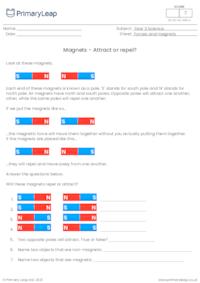
Children learn about when magnets attract and repel each other.
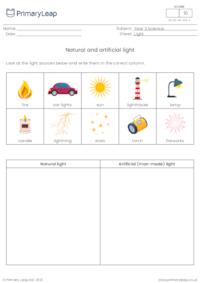
Children are asked to sort the different light sources into 'Natural light' and 'Artificial light'.
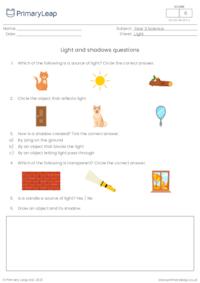
Children answer various questions about light and shadows.
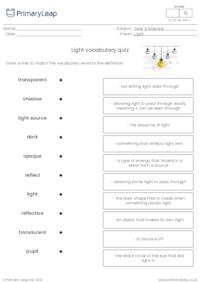
This fun light activity asks students to draw a line to match the vocabulary word to the definition. This worksheet can be used to reinforce learning when teaching the topic of light.
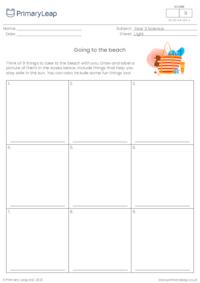
Children think of 9 things to take to the beach with them. They draw and label a picture of them in the boxes and include things that help them stay safe in the sun.
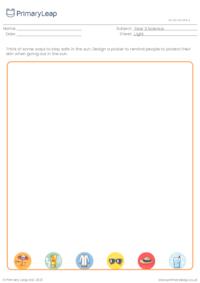
Children are asked to think of ways to stay safe in the sun and design a poster to remind people to protect their skin when going out in the sun.
 Free
Free
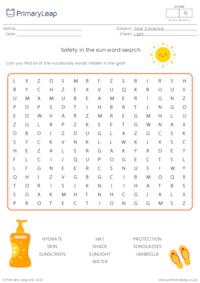
A fun activity that can be used when teaching students about the topic - light. Students find all of the vocabulary words associated with sun safety. Word searches are a great activity to improve vocabulary, memory, and spelling.
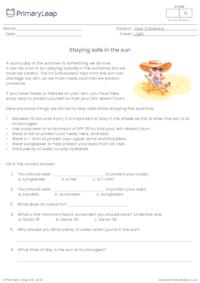
Children learn some different ways to stay safe whilst enjoying the sunshine. They read through the text and answer the accompanying questions.
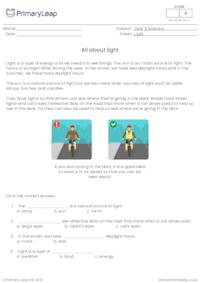
Light is a type of energy and we need it to see things. The sun is our main source of light. This comprehension can be used when teaching children about the topic of light. Students read through the information and answer the questions.
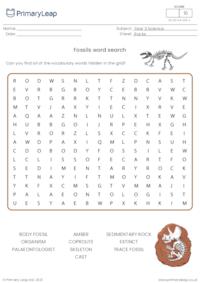
Word searches are a great activity to improve vocabulary, memory, and spelling. Children will love this fun word search all about fabulous fossils!
 Free
Free
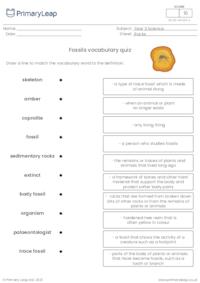
This fun fossils activity asks students to draw a line to match the vocabulary word to the definition.
 Free
Free
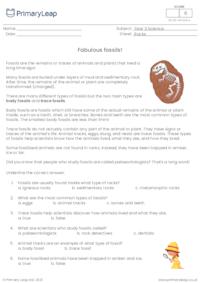
Fossils are the remains or traces of animals and plants that lived a long time ago! Many fossils are buried under layers of mud and sedimentary rock. Students learn some interesting facts about body fossils and trace fossils and answer the multiple-choice questions.
 Free
Free
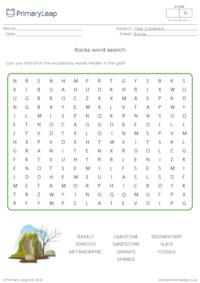
Children will love this fun word search all about rocks! Word searches are a great activity to improve vocabulary, memory, and spelling.
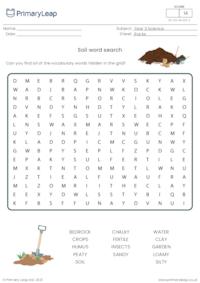
Children will love this fun word search all about soil! Word searches are a great activity to improve vocabulary, memory, and spelling.
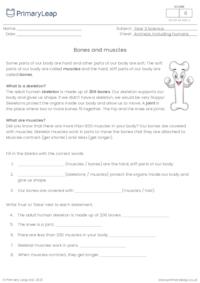
The soft parts of our body are called muscles and the hard, stiff parts of our body are called bones. This activity is all about muscles and bones. Students read through the information and answer the questions.
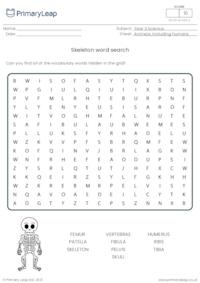
Children will love this fun word search all about the skeleton! Word searches are a great activity to improve vocabulary, memory, and spelling.
 Free
Free
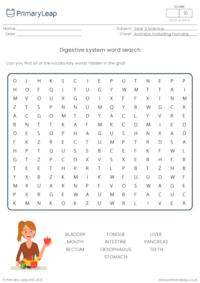
Children will love this fun word search all about the digestive system! Word searches are a great activity to improve vocabulary, memory, and spelling.
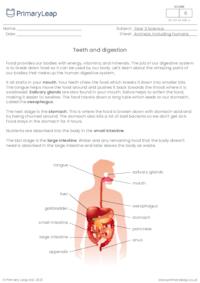
This activity is all about the digestive system. Students read through the text and then answer the accompanying multiple-choice questions.
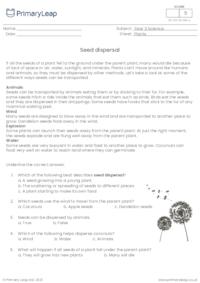
This science resource includes some interesting facts about seed dispersal. If all the seeds of a plant fell to the ground under the parent plant, many would die because of lack of space or air, water, sunlight, and minerals. Students learn about the different ways seeds can be transported and answer the multiple-choice questions.
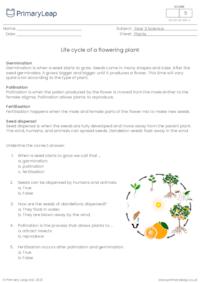
Children read the informative text on the life cycle of a flowering plant and answer the multiple-choice questions.
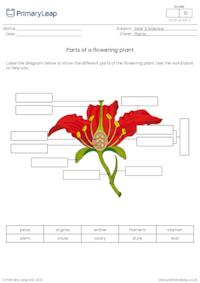
Students are asked to label the diagram to show the different parts of the flowering plant. Use the word bank to help you.
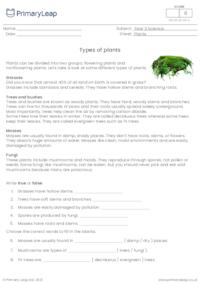
This science worksheet is all about different types of plants. Did you know that plants are divided into two groups - flowering plants and non-flowering plants. Students read through the article and answer the questions.
 Free
Free
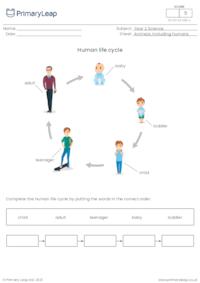
Children are asked to complete the human life cycle by putting the words in the correct order.
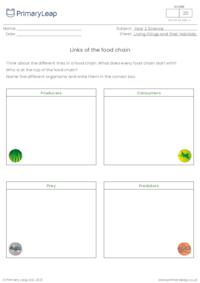
Children are asked to think about the different links in a food chain. What does every food chain start with? Who is at the top of the food chain? Students name five different organisms and write them in the correct column: producer, consumer, prey, and predator.
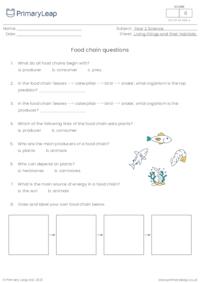
Students answer the questions about food chains and are asked to draw and label their own food chain.
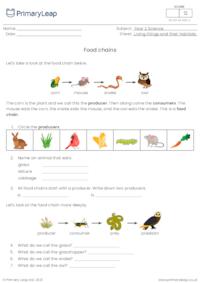
This fun activity can be used as an introduction to learning about food chains. Students learn about the different parts of a simple food chain and answer the questions.
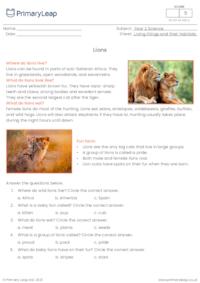
This activity will help a child's reading skills and teach them some fun facts about lions! Students read through the facts and answer the multiple-choice questions.
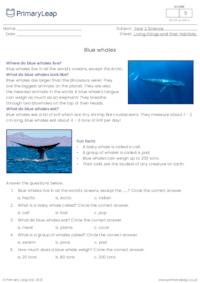
This activity will help a child's reading skills and teach them some fun facts about enormous blue whales! Students read through the facts and answer the multiple-choice questions.
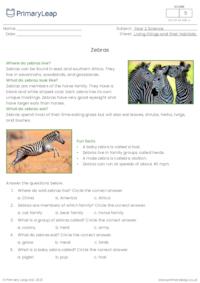
This activity will help a child's reading skills and teach them some fun facts about zebras! Students read through the facts and answer the multiple-choice questions.
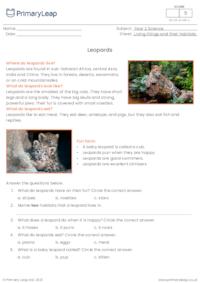
This activity will help a child's reading skills and teach them some fun facts about leopards! Students read through the facts and answer the multiple-choice questions.
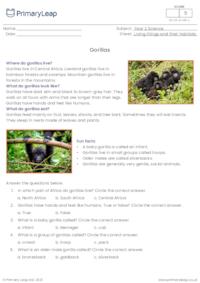
This activity will help a child's reading skills and teach them some fun facts about gorillas! Students read through the facts and answer the multiple-choice questions.
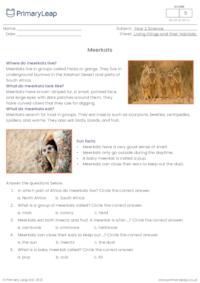
This activity will help a child's reading skills and teach them some fun facts about cute, little meerkats! Students read through the facts and answer the multiple-choice questions.
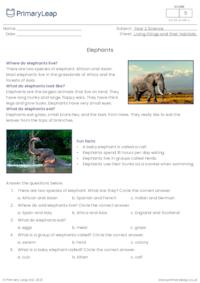
This activity will help a child's reading skills and teach them some fun facts about elephants! Students read through the facts and answer the multiple-choice questions.
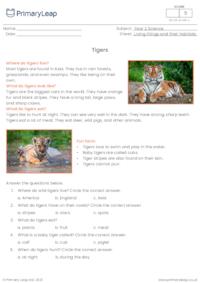
This activity will help a child's reading skills and teach them some fun facts about tigers! Students read through the facts and answer the multiple-choice questions.
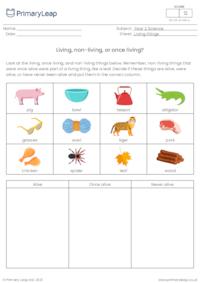
Students look at the living, once living, and non-living things and decide if they are alive, were alive, or have never been alive and put them in the correct column. Remember, non-living things that were once alive were part of a living thing, like a leaf.
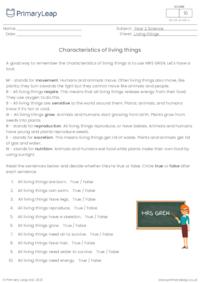
Children use MRS GREN to help them remember the characteristics of living things. Students read through the characteristics of living things and then decide whether the sentences are true or false.
 Free
Free
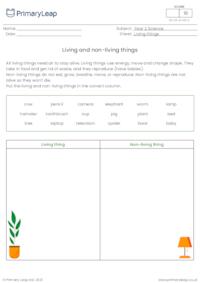
All living things need air to stay alive. Living things use energy, move and change shape. They take in food and get rid of waste, and they reproduce (have babies). Non-living things do not eat, grow, breathe, move, or reproduce. Non-living things are not alive so they won't die. This sorting activity asks students to put the living and non-living things in the correct column.
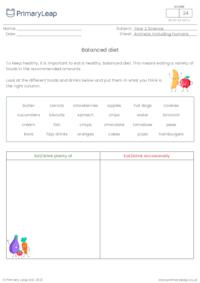
Which foods should we eat plenty of? Which foods should we eat occasionally? This sorting activity is great for children to identify healthy foods and unhealthy foods. Students look at the different foods and drinks and put them in what they think is the right column.
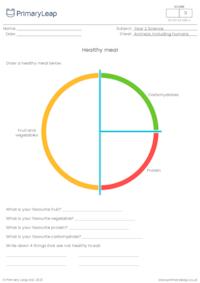
This science activity asks students to draw a healthy meal and answer the accompanying questions.
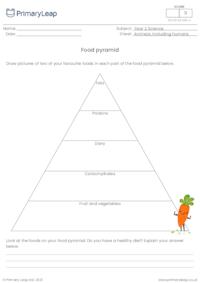
Students are asked to draw pictures of two of their favourite foods in each part of the food pyramid.
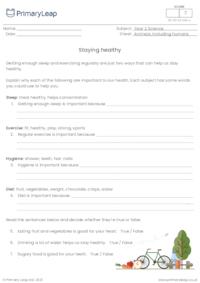
This activity is all about ways we can stay healthy and why certain things are important for our health. Students are asked to explain the importance of sleep, exercise, hygiene, and diet. They have been given some words to help them with their sentences.
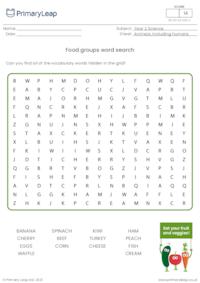
Children will love this fun word search all about food! Word searches are a great activity to improve vocabulary, memory, and spelling.
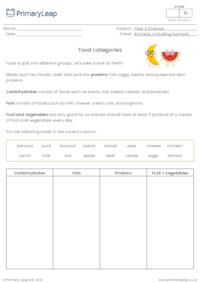
This fun sorting worksheet is a great activity to help students learn about the different food groups. They are given 16 different foods and they are asked to put them in the correct column: carbohydrates, fats, proteins, or fruit + vegetables.
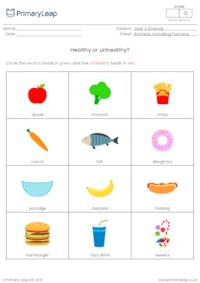
A fun, simple science activity about healthy and unhealthy foods. Students circle the healthy foods in green and the unhealthy foods in red.
 Free
Free
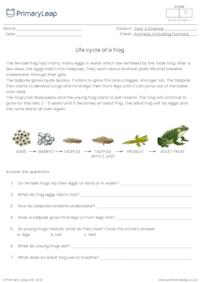
This is a great introduction activity to the life cycle of a frog. Students read through the text and answer the questions. There is a picture of the life cycle of a frog so students can see the different stages.
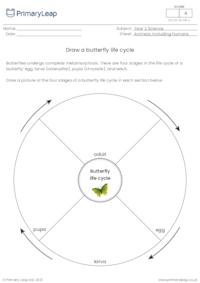
Students are asked to draw a picture of the four stages of a butterfly life cycle in each quarter of the circle.
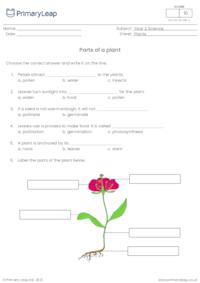
Students choose the correct answer and write it on the lines provided. There is also a label the parts of a plant activity.
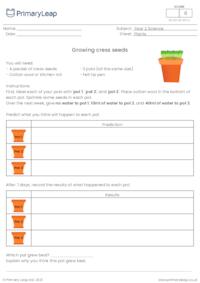
With the help of an adult, students follow the instructions on how to plant cress seeds. They are asked to predict what will happen to each pot and record their results.




Check out our ready-to-use Science worksheets that can be used in the classroom or at home. Simply download or print and watch your child’s confidence grow with our easy to follow Science printables.


One of the best things about printable worksheets is that they make learning fun and easy. Explore our educational resources based on Science and keep your children learning through these fun and engaging exercises.


Our Science printable worksheets are designed for progressive learning. Our engaging content enables a child to learn at their own speed and gain confidence quickly. When we help a child believe in themselves, we empower them for life.


Printable worksheets are a great way to enhance creativity and improve a child’s knowledge. Help your child learn more about Science with this great selection of worksheets designed to help children succeed.
An email has been sent to your account please activate your account to continue.

PrimaryLeap has introduced a new interactive learning platform and would like to offer you a completely Free Upgrade.
We understand that you may only want to use our services for worksheets and may not want to upgrade your account.
But if you are interested in trying out our new services then you're just a click away.
An email has been sent to your account please activate your account to continue.
You've answered
and have 2 Questions remaining
Import multiple students information through a CSV File. Browse or drag .CSV file below.